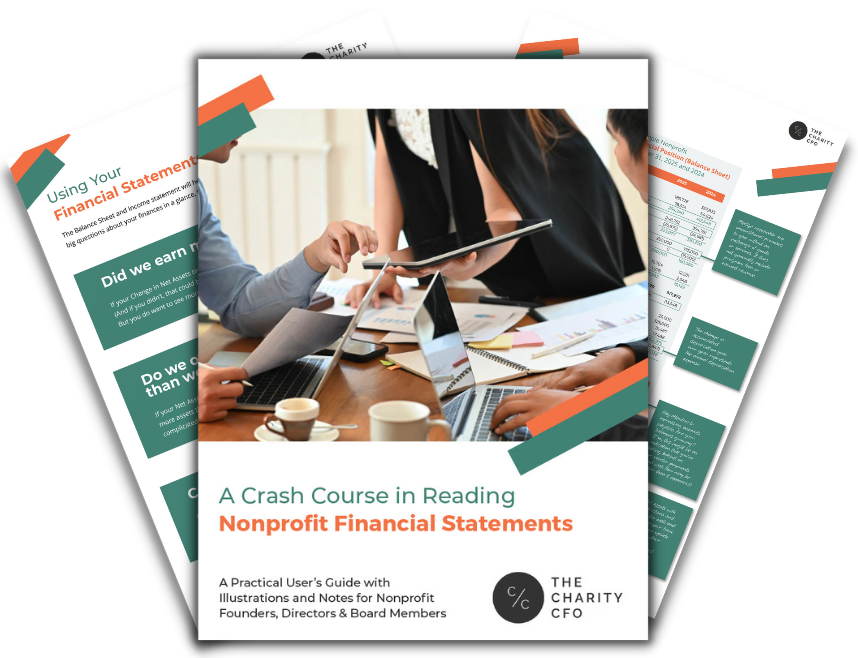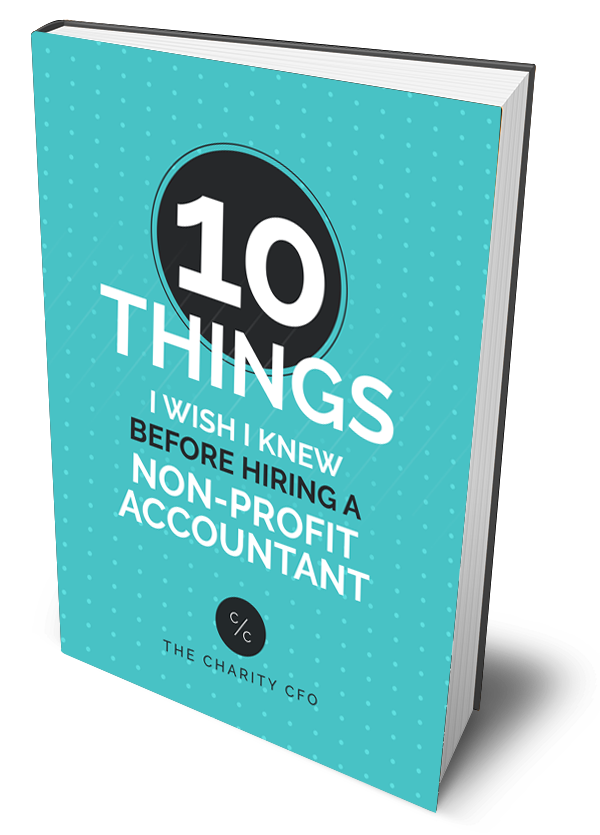Many nonprofit founders think that they won’t have to worry about taxes.
Unfortunately, it’s just not true.
“Tax-exempt“ doesn’t mean that you don’t have to pay any taxes. It simply means that you don’t have to pay most federal and state income taxes.
But even that’s not always the case. And after that, it gets more complicated quickly.
So if you’re new to nonprofit accounting, you shouldn’t make too many assumptions about which taxes you will (or won’t) have to pay.
In this article, we’ll do our best to answer the most the most common tax-related questions for 501(c)(3) nonprofits. But you should consult your lawyer or tax professional to confirm the details of your specific tax situation.
A note on the term “nonprofit:”
There are 27 different nonprofits types in the federal tax code. For simplicity’s sake, we’re going to focus on 501(c)(3) charitable organizations in this article, because it is the most common type and deals with a range of tax compliance issues.
Do nonprofits pay income tax?
Your nonprofit probably won’t have to pay federal income tax or state income taxes, as long as you’ve applied for tax-exempt status with the IRS and presented the “letter of determination” from the IRS to your state’s Department of Revenue.
There is one clear exception, though: you will have to pay income tax on revenue from unrelated business activities.
The IRS categorizes unrelated activities as when an “organization is regularly engaged in a trade or business not substantially related to furthering the nonprofit exempt purposes.”
So, if your nonprofit is set up to run an afterschool program, and you open a store selling artisan handicrafts, you’ll need to pay income tax on money generated by the store (even if you use the profits to fund your mission). Because artisan crafts aren’t “not substantially related to furthering the exempt purpose” of your organization.
Most organizations won’t have to pay unrelated business income tax (UBIT). But it’s an important reminder that “tax exempt” doesn’t give you free rein to do whatever you want and not pay taxes.
To be approved for and maintain tax-exempt status, you’ll need to meet several clear criteria. And you’ll need to continue to meet them, as well as maintain detailed accounting records.
Nonprofit organizations must meet these requirements to obtain and maintain tax-exempt status:
- Use their income, funds, or other resources to further their mission to serve the public.
- Operate for exempt purposes: science, religion, charitable, literary, research, public safety testing, preventing child and animal cruelty, and certain amateur sports competitions.
- State a charitable purpose within the articles of incorporation or limit activities to those included under the Tax Code.
- Maintain tax-exempt status with consistent accounting standards and submit an IRS Form 990* each year.
*What’s a Form 990? Nonprofits that aren’t religious or political file must file an annual tax return using IRS Form 990. It’s a tool for the IRS to ensure compliance and collect financial information about tax-exempt organizations. Find out more about the 990 here.
Do nonprofits pay payroll taxes?
Yes, nonprofits must pay federal and state payroll taxes.
Your recognition as a 501(c)(3) organization exempts you from federal income tax. But, nonprofits still have to pay employment taxes on behalf of their employees and withhold payroll taxes in accordance with the information submitted on their W4, just like any other employer. You’ll be responsible for:
- Federal income tax withholdings (FITW)
- Social Security and Medicare taxes (FICA)
- Federal unemployment taxes (FUTA)
- State and local payroll taxes (consult a tax professional in the local area
Do nonprofits pay sales tax?
We’re not going to lie: sales tax rules for nonprofits are complex. We’ll do our best to break it down for you by answering three of the most common questions we get about sales tax.
- Do nonprofits pay sales tax when they buy things? Answer: Any 501(c) organization could be required to pay sales tax. For transactions related to the organization’s charitable purpose, sales tax is (usually) waived. This may depend on the size, type, and reason for the purpose and varies by state.
- Do nonprofits that sell goods or services to consumers collect sales tax? Answer: In most states, yes. This article details some small exceptions in certain states.
- Do nonprofits that sell goods or services to consumers pay sales tax? Answer: Even if you don’t need to collect sales tax at the point of sale, some states may still require you to pay sales tax for that item or service.
We warned you this part was tricky!
To avoid a surprise tax bill that you can’t pay, please consult an experienced nonprofit accountant to understand the regulations in your area before you start selling goods or services.
Do nonprofits pay property tax?
Nope! If you qualify for federal tax-exempt status, you’re exempt from paying property tax in all 50 states.
Some local governments require all property owners to make payments for local services such as law enforcement, snow removal, fire protection, and streetlights. Since these are structured as “payments,” rather than taxes, nonprofits are required to pay these as well if they own or occupy an office space.
Do nonprofits pay income tax on investments?
Tax-exempt organizations are eligible to make investments in stocks, bonds, and other financial instruments. And the IRS doesn’t treat profits the nonprofit earns from investments differently than other donations.
So, as long as you maintain tax-exempt status, you don’t have to pay federal income tax or capital gains tax on stock dividends and gains on sales.
Real estate sales may be tax-exempt too, as long as the property was used for purposes related to your organization’s core mission.
Do nonprofit employees have to pay income tax?
Yes, nonprofit employees have to pay the same taxes as employees of for-profit companies.
This one isn’t directly related to your company’s tax obligations. But it’s a question we get a lot, so we’re sure your employees will ask.
All of your employees (including your management team) will need to pay all federal and state income taxes, as well as payroll taxes, on all eligible income and any taxable fringe benefits.
The law is very clear on this, tax exempt status is a benefit given to organizations, not to the individuals that work for it.
That’s a wrap on our nonprofit tax rundown! We know it’s a lot to take in, so if you still have questions…
Have more questions about nonprofit taxes?
The truth about nonprofit taxes is that it’s complicated.
We’ve done our best to simplify the core topics here. But if you’d like to be sure that you’re complying with all local, state, and federal requirements, you can’t rely on a google search or a blog article. Because mistakes could cost you money, or even put your nonprofit status at risk.
Instead, seek out an experienced nonprofit accountant that you can trust.
At The Charity CFO, you get a dedicated service team that learns the details of your organization so we can give you expert advice on how to approach any nonprofit tax situation.
Plus, we’ll help modernize your bookkeeping and accounting systems to help save you time and money. So you can spend less time worrying about taxes, and more time executing your mission with confidence.
If you’re looking for a financial partner you can trust to have your back, click below and let us show you how we can help.
Schedule a Free Consultation with The Charity CFO

Do You Struggle to Make Sense of Your Financial Statements?
Get our FREE GUIDE to nonprofit financial reports, featuring illustrations, annotations, and insights to help you better understand your organization's finances.
Get the free guide!




0 Comments